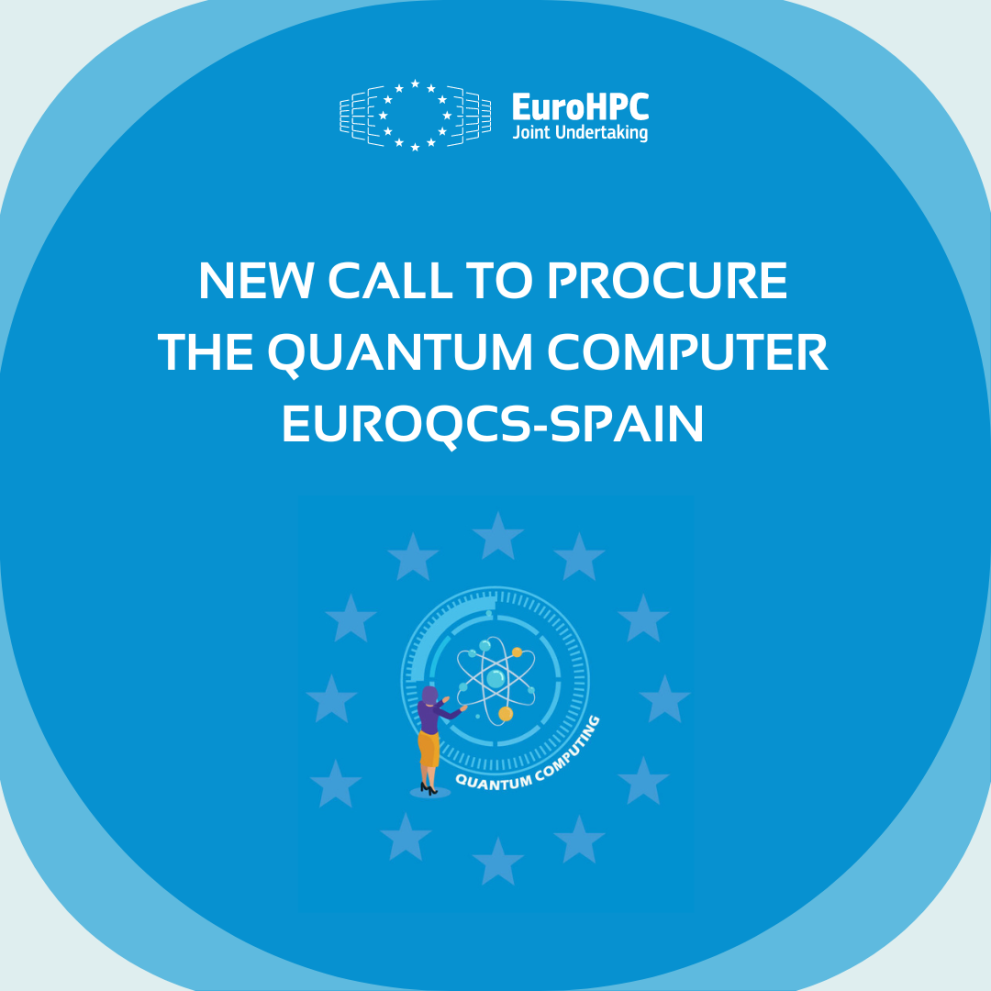
EuroQCS-Spain will be an adiabatic quantum computer, or quantum annealer, hosted and operated by the Barcelona Supercomputing Center (BSC) in Spain and integrated into the EuroHPC world-class supercomputer MareNostrum 5 (MN5).
This new quantum system will complement the digital quantum computer that BSC already hosts and which was procured under the Quantum Spain initiative. These different quantum systems will be integrated into MN5 to provide European users access to a variety of different computing platforms.
EuroQCS-Spain will be available to a wide range of European users, from the scientific community to industry and the public sector. The upcoming quantum computing infrastructure will support the development of a wide range of applications with industrial, scientific and societal relevance for Europe, adding new capabilities to the European supercomputing infrastructure.
The acquisition and integration of quantum computers into existing HPC data centres is EuroHPC’s first initiative to procure quantum computing hardware directly, which will be owned by the EuroHPC JU.
More details
The total cost of the system is EUR 8.5 million and will be co-funded by the EuroHPC JU and the EuroQCS-Spain consortium. The EuroQCS-Spain consortium is led by BSC, and includes Institut de Física d’Altes Energies (IFAE) from Spain and the International Iberian Nanotechnology Laboratory (INL) in Portugal.
The closing date for submission of an application to tender is 25 June 2024 at 16:00 CEST.
More information can be found here.
Background
On 27 June 2023, the EuroHPC JU signed hosting agreements with six sites across Europe to host & operate EuroHPC quantum computers.
The selection of six hosting entities followed the view of offering the widest possible variety of different European quantum computing platforms and hybrid classical-quantum architectures, giving Europe the opportunity to be at the forefront of this emerging field, and to provide European users with access to diverse and complementary quantum technologies.
This initiative offers a novel interpretation of quantum computers as accelerator platforms in genuine HPC environments. The foreseen integration will require essential R&D developments towards a hybrid software stack managing both HPC and quantum computing workloads. All Hosting Entities will collaborate closely with European Standardisation bodies during the integration work.
These six quantum computers will come on top of two analogue quantum simulators currently being deployed within the EuroHPC JU project HPCQS , which are based on neutral atoms supplied by the French company PASQAL. HPCQS is the first initiative towards a federated European quantum computing infrastructure, tightly integrating two quantum computers, each controlling 100-plus qubits in the Tier-0 HPC systems Joliot-Curie of GENCI and the JUWELS modular supercomputer at the Julich Supercomputing Centre (JSC).
The EuroHPC JU is a legal and funding entity, created in 2018 and reviewed in 2021 by means of Council Regulation (EU) 2021/1173, with the mission to:
- develop, deploy, extend and maintain in the EU a world-leading federated, secure and hyper-connected supercomputing, quantum computing, service and data infrastructure ecosystem;
- support the development and uptake of demand-oriented and user-driven innovative and competitive supercomputing systems based on a supply chain that will ensure components, technologies and knowledge limiting the risk of disruptions and the development of a wide range of applications optimised for these systems;
- widen the use of that supercomputing infrastructure to a large number of public and private users and support the development of key HPC skills for European science and industry.
In order to equip Europe with a world-leading supercomputing infrastructure, the EuroHPC JU has already procured nine supercomputers located across Europe. Three of these EuroHPC supercomputers are now ranked among the world’s top 10 most powerful supercomputers: LUMI in Finland, Leonardo in Italy and MareNostrum 5 in Spain.
Details
- Publication date
- 15 May 2024
- Author
- European High-Performance Computing Joint Undertaking